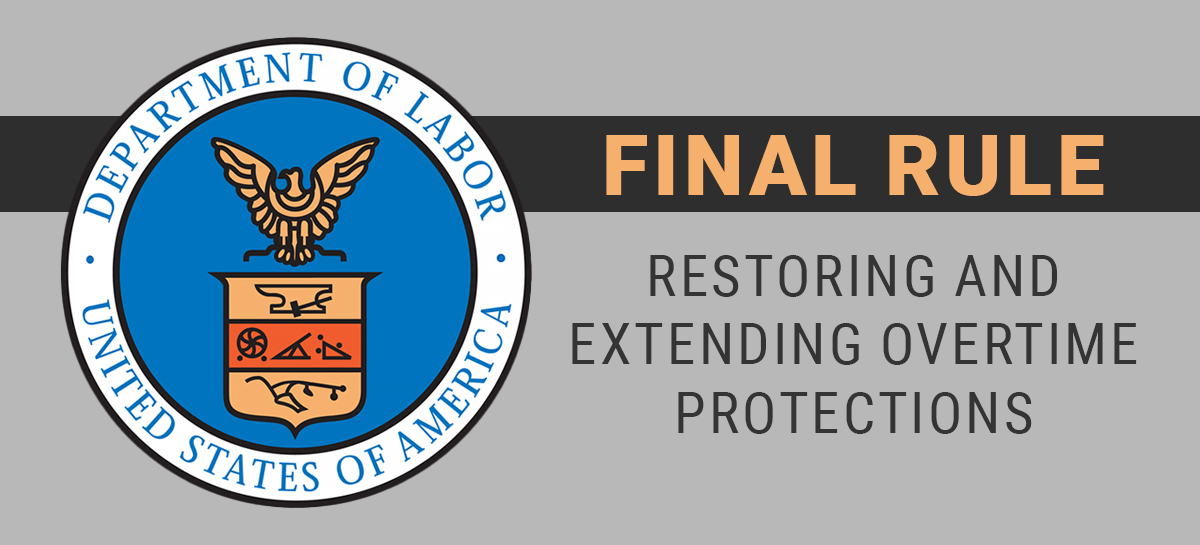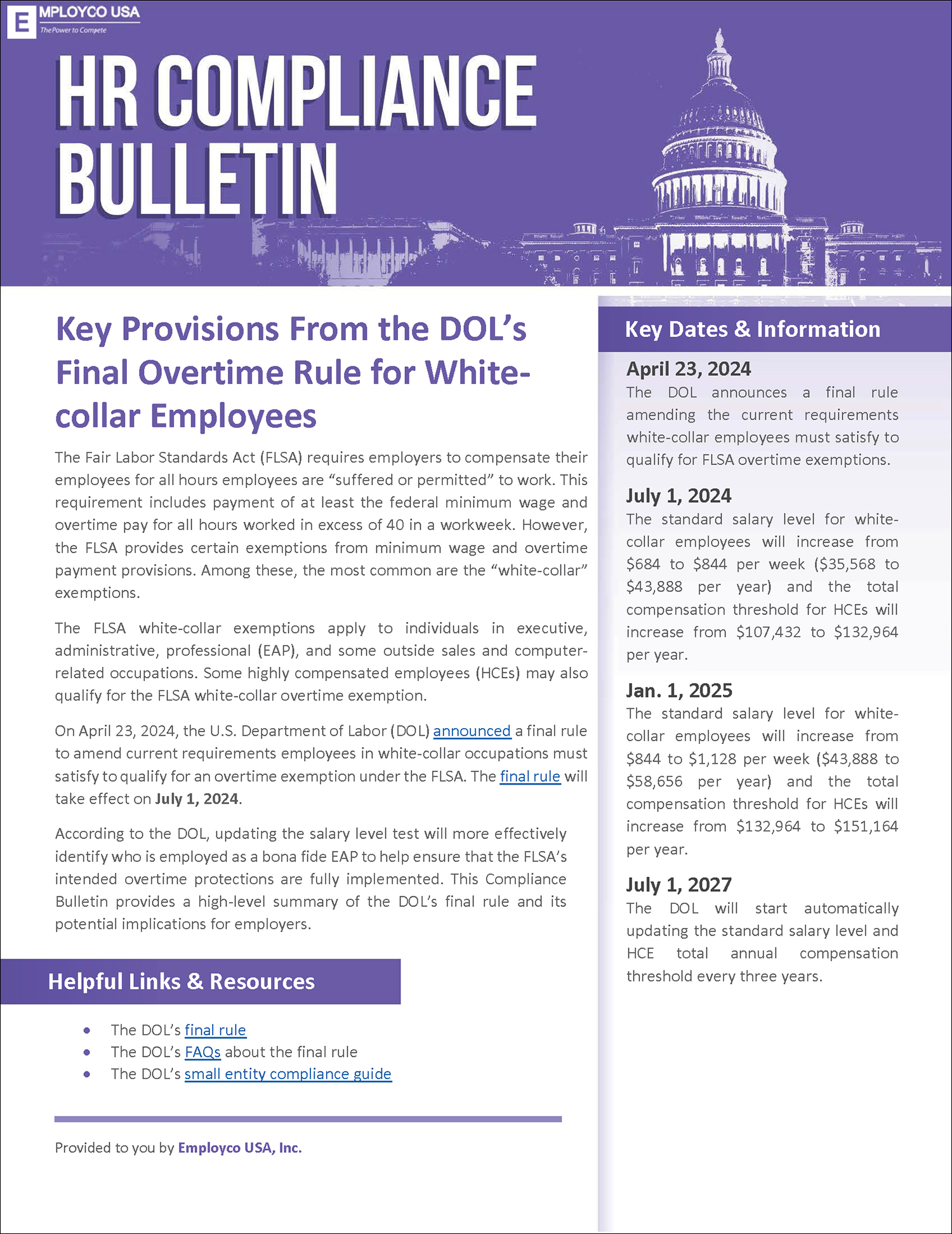
On April 23, 2024, the U.S. Department of Labor (DOL) announced a final rule to amend current requirements employees in white-collar occupations must satisfy to qualify for an overtime exemption under the Fair Labor Standards Act (FLSA). The final rule will take effect on July 1, 2024.
Increased Salary Level – The FLSA white-collar exemptions apply to individuals in executive, administrative, professional, and some outside sales and computer-related occupations. Some highly compensated employees may also qualify for the FLSA white-collar overtime exemption. To qualify for this exemption, white-collar employees must satisfy the standard salary level test, among other criteria. This salary level is a wage threshold that white-collar employees must receive to qualify for the exemption.
- July 1, 2024 – standard salary level increases from $684 to $844 per week ($35,568 to $43,888 per year)
- Jan 1, 2025 – standard salary level increases from $844 to $1,128 per week ($43,888 to $58,656 per year)
- Example: As of January 1st, if you have a supervisor who is currently paid a salary of $55,000 per year, you will need to make a change to this person – one option is to convert the person to a non-exempt / hourly paid employee, begin to track their hours worked, and pay overtime wages for hours worked beyond 40 in a week.
Impact on Employers – The first salary level increase in July is expected to impact nearly 1 million workers, while the second increase in January is expected to affect approximately 3 million workers. Employers should become familiar with the final rule and evaluate what changes they may need to adopt to comply with the rule’s requirements. Legal challenges to the rule are anticipated, which may delay the final rule’s implementation.
Additional Information – Click the following link to read a more detailed description of the upcoming changes along with recommended employer next steps: Key Provisions from the DOL’s Final Overtime Rule for White-collar Employees

Contact us with any questions or for support with any required employee changes.